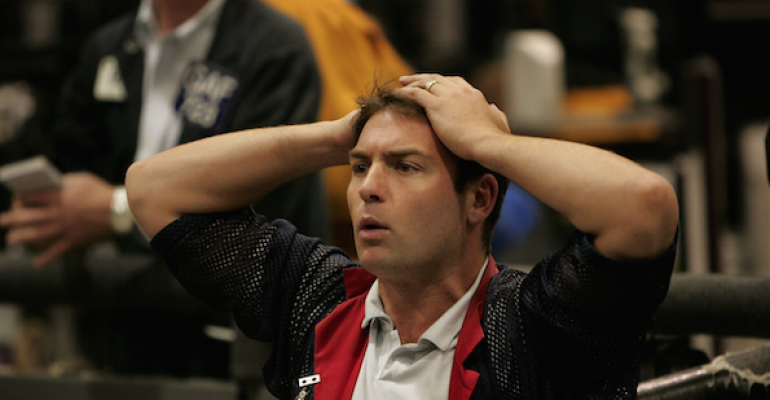
There are plenty of bad mutual funds out there, but which one is the absolute worst? Fund Reference thinks they've found it, and it isn’t some high-fee product with an exotic strategy. Instead, it’s an index fund that charges an annual 0.6 percent expense ratio to track the S&P 500. The Great-West S&P 500 Index Fund, which trades under the ticker MXVIX, guarantees it will underperform other products that implement an identical strategy, according to Michael Johnston, a senior analyst at Fund Reference. There are several similar funds like this that charge even higher fees, but what makes MXVIX truly the worst is that it has attracted $2.2 billion in assets by being the only option available in several 401(k) plans to invest in the S&P 500. “It’s the mutual fund equivalent of a $9.50 Bud Light at a baseball game,” Johnston said. “The bar across the street is selling the exact same product for $2.5, but is (at least temporarily) off limits.”
Annuity Fraudsters

Two executives who sold so-called “charitable gift annuity” product are facing fraud charges from the Securities and Exchange Commission. The regulator claims CEO Jim Griffin and CFO James Wolle of Syracuse, N.Y.-based 54Freedom swindled 125 investors out of at least $8 million. The duo falsely claimed these annuities were backed by reputable insurance companies, but instead, diverted at least $1.2 million of investor funds to pay for things like boat trips to Hawaii and New Zealand, according to the SEC. Giffin is also facing fraud and money laundering related to the annuities scheme. He was arrested, but free on bail after pleading not guilty on Thursday.
The Richest People of All Time

Donald Trump may claim those who low-ball his net worth are “losers, and really, really not very bright.” But Trump is a pauper compared to Mansa Musa, the 13th Century king of Timbuktu, whose riches are said by scholars to be “uncountable” and who tops a list of the 10 richest people of all time (in today’s dollars.) Others making the list? China’s Emperor Shenzong, who controlled an estimated 25 percent of global GDP in the 11th Century; Alan Rufus (a.k.a Alan the Red), who died with the equivalent of today’s $194 billion, and Augustus Caeser, whose personal wealth would equate to $4.6 trillion today (he did, after all, personally own Egypt.) But Americans still dominate the list, with Bill Gates, Andrew Carnegie and John D. Rockefeller representing the ascendency of U.S. capitalism.




